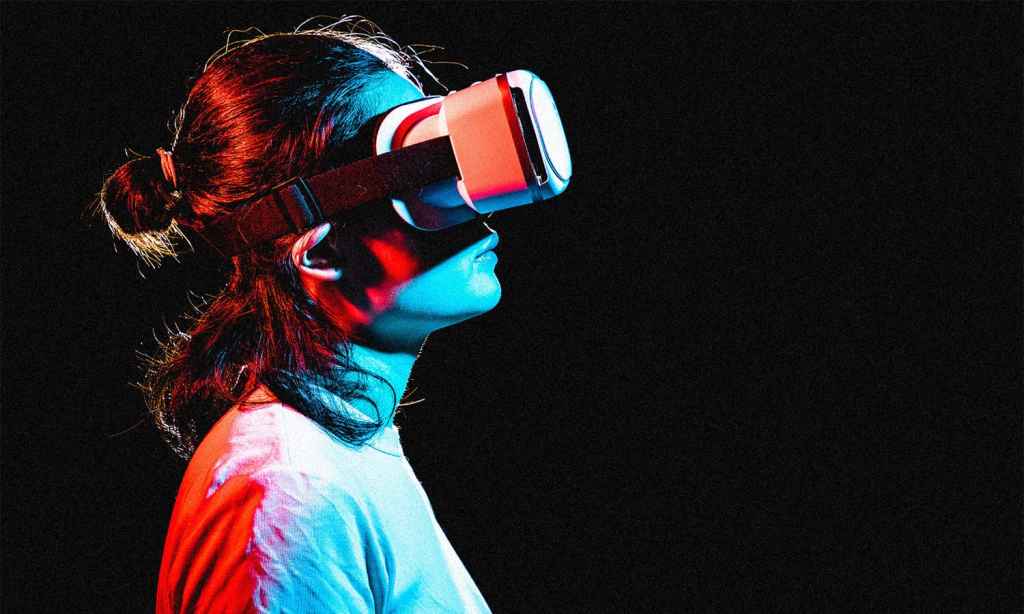This morning, Facebook CEO and founder Mark Zuckerberg well and truly staked his claim on the future of the internet by rebranding Facebook’s parent company – also called Facebook, confusingly – Meta.
It’s a move that will see the organisation break away from traditional social media and towards shaping a new future of the internet, one that is much more closely aligned with virtual and augmented reality.
While Meta has made overtures at this being a global, collaborative project, it’s clear that they intend to be the forerunners in this space, amalgamating the rest of the internet into their platforms and programmes and further monopolising the digital space.
Meta has previously announced that they intend to hire 10,000 new employees in Europe to develop and build this new metaverse reality, attempting to head off competition from the likes of Microsoft and Fortnite parent company Edge.
During Meta’s annual Connect conference, Zuckerberg shared his vision for the future of the internet, which he sees as a “social, 3D virtual space where you can share immersive experiences with other people, even when you can’t be together in person – and do things together you couldn’t do in the physical world,” according to promotional materials.
“Right now, our brand is so tightly linked to one product that it can’t possibly represent everything that we’re doing today, let alone in the future. Over time, I hope that we are seen as a metaverse company, and I want to anchor our work and identity on what we’re building toward,” Zuckerberg said.
Alongside this vision, he announced a huge raft of VR and AR investments that will help to bring this idea to life. Here’s what Meta is focusing on.
Meta Virtual Reality
VR is at “an inflection point,” Meta said, citing the release of their new Oculus Quest 2, a third-generation VR gaming headset from the Meta subsidy.
“Games are booming, VR is getting more social, fitness is becoming a hot vertical, and we’re building out more ways VR can be used as a work device,” Meta write.
“And, we continue to invest in the developer community to help them build and monetize their applications through new tools and features”.
Horizon Home
Meta introduced Horizon Home, their “early vision” for a metaverse home base from which other apps and sites could be reached in virtual reality.
Horizon Home is the place you’ll be taken to when putting on your Oculus headset and from there you can invite friends to engage in digital social interactions like watching films, playing games, and browsing apps together.
Messenger calling in VR
Facebook Messenger will soon feature VR calling features where you can slip on your headset and start chatting and engaging with your mates in the metaverse.
Communication will be predominantly spoken, meaning the need for keyboards and other ways of communicating will be reduced.
New Oculus offerings
Meta has announced that Oculus will have a whole new range of activities including something called supernatural boxing, new FitXR fitness studios and a game called Player 22, which is currently used by pro athletes, is adding guided and hand tracked bodyweight exercises.
There will also be a new fitness accessories pack for the Quest 2 with improved controller grips and facial interface coming next year.

VR for work
Oculus is also launching Quest for Business, bringing work accounts into Facebook VR applications, meaning you can use the platform for work without having to link your personal account.
Business apps like Slack, Dropbox, Monday.com, Smartsheet, Facebook and Instagram, are also being integrated into Horizon Home, allowing you to access and work through those apps while in the virtual reality space.
A personal workspace environment called Horizon Workroom will also be created in Horizon Home which can be used solely for work in the metaverse. Companies will soon be able to customise their personal business Workroom with company logos, designs, and posters.
Meta Augmented Reality
Augmented reality is like a softer version of virtual reality in that it uses technology like phones and wearable tech like smart glasses to display information to the user about the world around them that only exists virtually.
Instagram and Snapchat filters are a good example of AR but the tech to support it, as it stands, is not very practical.
Meta is hoping to change that of course with huge investment in AR glasses while building out the software to develop these capabilities. Meta has recently launched AR glasses built in collaboration with Ray-Ban but these are not as advanced as they could be. Meta have said they hope to bring “fully featured” AR glasses to market soon.
Spark AR
Spark AR is the AR platform Meta uses for creation and distribution across its apps and devices. They’ve expanded its capabilities with geo-locked AR location experiences, improved body and hand tracking, and are bringing virtual objects in soon.
Virtual objects are crucial to the advancement of AR and will mean that soon you could be walking into a virtual store and trying on virtual clothing before purchasing.
In order to develop the metaverse, Meta plans to massively invest in its education programmes, bringing the next generation of developers up through its own organisation. They are spending US$150 million on a Facebook Reality Labs education programme, aimed to help create economic opportunities for AR/VR creators and developers.
Their already existing AR curriculum programme will also be expanded to feature new training courses and a formal certification process to award graduates Spark AR credentials.

All of the above is a major development in the future of the internet and Meta’s place in it. Zuckerberg is going hard on the metaverse, seeing the potential for the future of work, social interaction, and, particularly commerce.
While the announcement is significant, it’s also troubling, as the social media giant has been blamed for the decline in everything from mental health, democracy, and the very fabric of society.
VICE reported on the announced name change by writing that the announcement projects a vision where “Facebook is not a horrible company.”
“Its new mission is to invent a ‘metaverse’ that will make us all forget what it’s done to our existing reality,” they write.
It’s not wrong to be sceptical. Science fiction has been warning us of the dangers of virtual reality existence, separating us from one another and the physical world in general, since the genre began, particularly where one massive company dominates the whole world, controlling what everyone sees and hears while tracking their every movement.
The company is also proposing that the solution to the damage Facebook has caused is more Facebook. While it might sound good to investors, governments around the world are gearing up to regulate the social media giant and restrict its power over our lives.
Now they may need to be restricting their control over reality itself.
Read more stories from The Latch and subscribe to our email newsletter.







